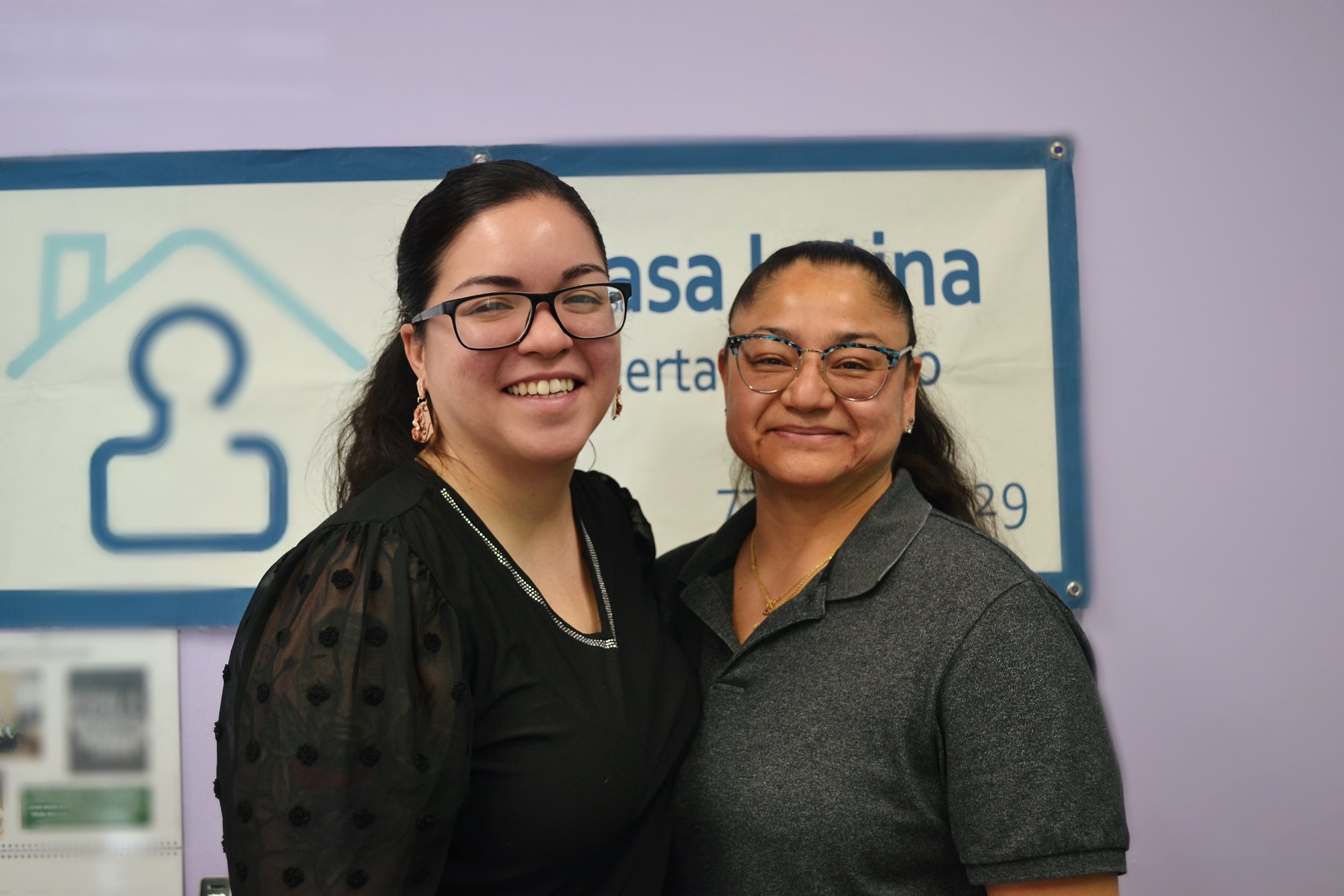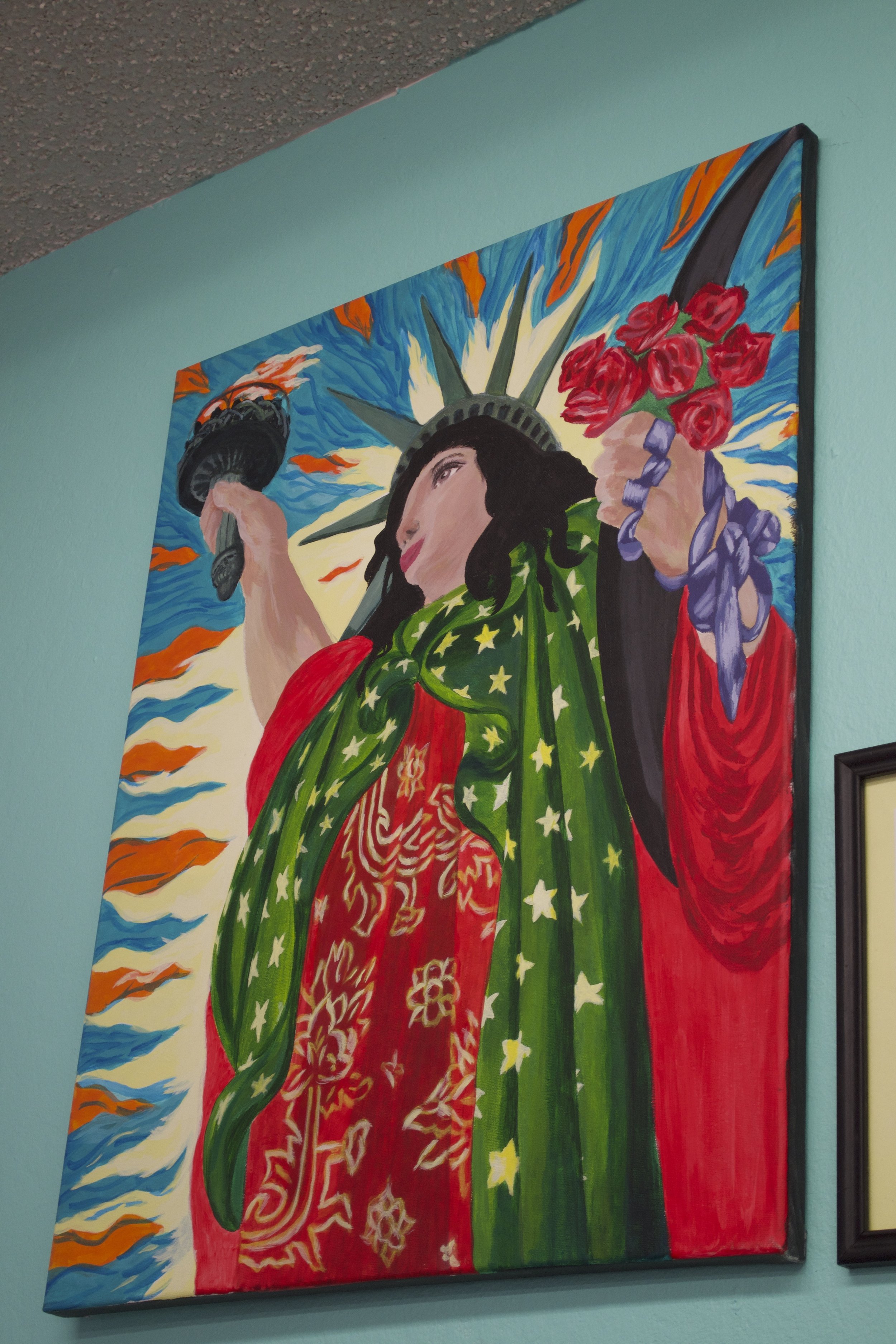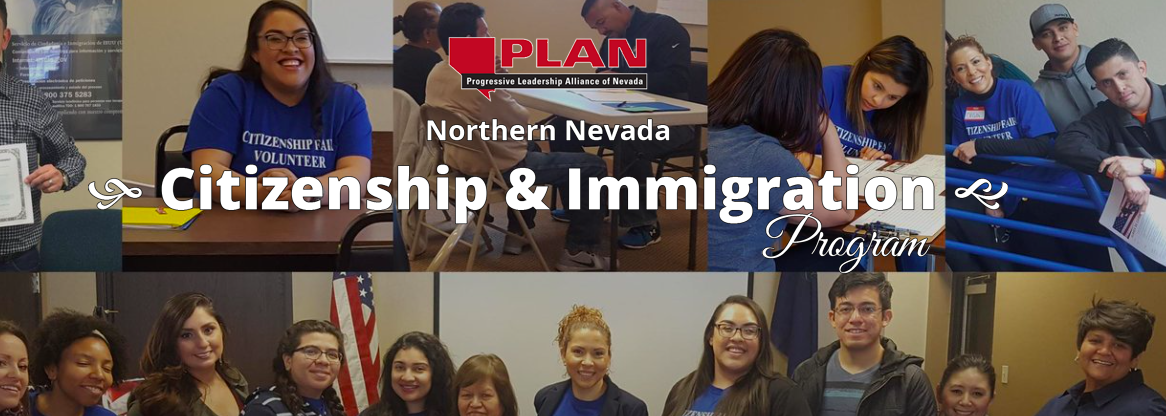“I felt alone. Since all my peers were documented, they didn't really struggle with the same things that I was struggling with,” said Samuel.
Born in Mexico, twenty-year-old Samuel is an undocumented immigrant studying nursing in Nevada, who is not eligible for financial aid or health insurance due to his status.
There are a multitude of organizations and services in the Silver State assisting the immigrant and undocumented community.
One of these organizations is Make the Road Nevada, which advocates for the well being of undocumented people and newly arrived immigrants, providing community and resources to support them.
Navigating long journeys to get necessary documentation, including visas, waiting for court dates, finding legal work, and trying to keep up with the increased costs of living puts even more pressure on these individuals and their families.
Reno-based Tu Casa Latina is another nonprofit organization that specializes in humanitarian forms of relief for immigrants. They provide care and support for immigrants suffering from domestic violence, abuse, and trafficking.
The nonprofit found its beginnings in My Favorite Muffin, a small breakfast cafe on California Ave. It was here that Xiomara Rodriguez, Tu Casa Latina’s founder, began assisting individuals and families with visa applications in 2014.
After seeing the high demand for this type of help, Rodriguez opened a nonprofit in a small brick building along Terminal Way.
Now, funded through grants, donations, and volunteer support Tu Casa Latina has helped over 100 women and men seek support for being a victim of a violent crime.
Working with the undocumented community, Tu Casa Latina also helps immigrant victims of crime obtain visas. There are three main visas that immigrant victims of crime can apply for; The U visa, the T visa, and the VAWA visa.
“We don’t have any control over the visa time, but we do have a victim resource advocate who can outsource resources that a victim may need,” Tu Casa Latina’s Outreach Coordinator Yolanda Arzola said.
“Most of our immigrants assume the role of belonging while staying in the shadows because they know their status can be used against them,” said Tu Casa Latina’s Executive Director Sandra Quiroz of residents who remain undocumented.
“If an undocumented immigrant is told to work for 80 hours they may only get paid for 40 hours,” she said.
Quiroz also touched on the high cost of living, and how some Reno landlords are using an undocumented immigrant's status to charge them more than their non-immigrant neighbors.
“Some landlords are charging three times the amount for the application, and then some will charge you five times for the initial deposit entering into the home,” she said.
Challenges like these under an already complex immigration system are what drew Reno local Karen Monrreal to become an immigration lawyer.
“I believe that everyone deserves the opportunity to live and work in the United States,” she said.
Coming from parents who are Mexican immigrants, Monrreal personally sees the high volume of both violent crimes and unjust housing conditions in the immigrant community.
Monrreal explained the increasing cost of living makes it difficult for immigrants to find affordable housing, leading to substandard conditions and sometimes unfair treatment from landlords.
“The uncertainty surrounding their legal status can make it difficult for undocumented immigrants to find employment, access to healthcare…[or] coming forward as a victim of crime,” she said.
Monrreal said that her job is both taxing and rewarding: “I have seen the firsthand challenges that immigrants face, but I also see the strength and resilience of the community.”
Another organization working to provide services and support to the immigrant community in Reno, is the Progressive Leadership Alliance of Nevada (PLAN).
Their Northern Nevada Citizenship and Immigration Program helps individuals with adjustment of status and protection.
Representing immigrants in front of US Citizenship and Immigration Services (USCIS), the organization also assists with DACA renewals, and offers Temporary Protected Status to endangered individuals.
The Deferred Action for Childhood Arrivals (DACA) program protects undocumented individuals for renewable two-year periods. Most of PLAN’s current clients are DACA recipients and they adjust the fees for their services depending on a particular individual’s circumstances.
Started in the early 2000s by Rosa Molina, PLAN has been helping the immigrant community for over 20 years.
Relying on fundraising and donations through the organization's website, individuals get referred based on recommendations from other clients and non-profits.
“In a lot of the countries where these people come from, there's not much opportunity for them and their families to be able to survive. So they come here to try to find a better future and more opportunities,” said Planning Citizenship and Immigration Specialist Lizette Becerra.
“It's needed, and PLAN provides processing for organizations like USCIS to help and process cases from these individuals so they can move forward with their lives in the US,” she said.
Becerra said that one of PLAN’s biggest challenges in 2023 is the overwhelming need for asylum assistance and the organization’s limited capacity.
“Unfortunately, attorney fees are very expensive, and so these individuals who are coming into the country are unable to pay those fees because they don't have a work permit,” said Becerra.
When given support, immigrants like Samuel, even when undocumented, are able to inspire change and fight for their futures.
Through Make the Road Nevada, Samuel received the opportunity to go to Washington DC to talk to senators about the immigrant experience and is also advocating for a bill that would provide health insurance to undocumented individuals in Nevada.
He was recently awarded the Dream US scholarship, a full ride scholarship to either UNLV or Nevada State College that was introduced to him by the organization and will be furthering his education at one of these institutions next year.
“For undocumented students it's kind of difficult. So not having these resources at my disposal was kind of hard. And going around and looking for information was also hard because a lot of times I was given the wrong information and I was led to the wrong path. So Make the Road kind of fixed all of that,” said Samuel.
Make the Road Nevada has recently opened an office along Plumb Lane in Reno, where they now provide boundless resources and support to the immigrant community here as well.







